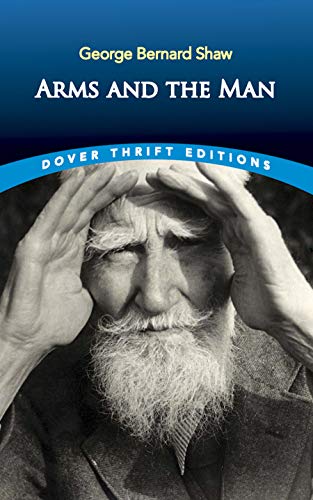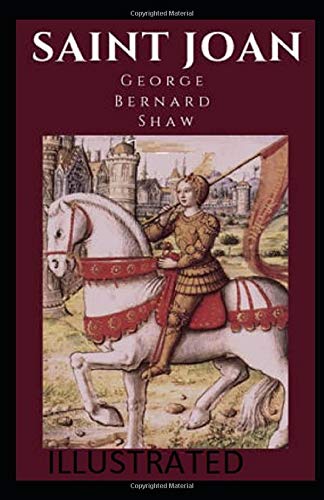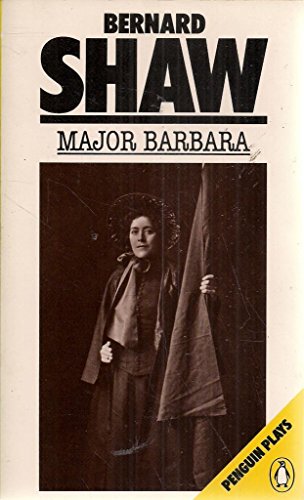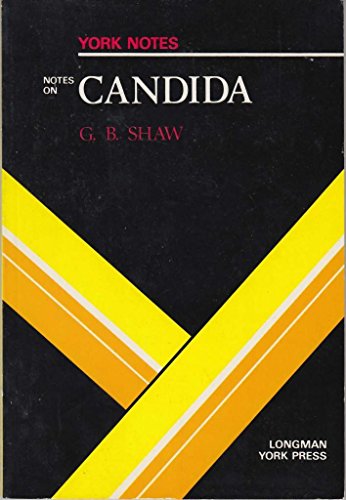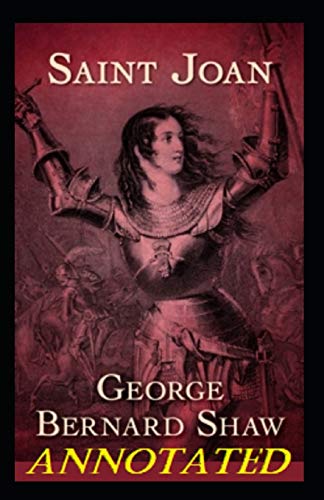GEORGE BERNARD SHAW
CAESAR AND CLEOPATRA: ANNOTATED
eBook
( Aug. 5, 2018)
Product Description :
Caesar and Cleopatra is a play written in 1898 by George Bernard Shaw that depicts a fictionalized account of the relationship between Julius Caesar and Cleopatra. It was first published with Captain Brassbound's Conversion and The Devil's Disciple in Shaw's 1901 collection Three Plays for Puritans. It was first performed in a single staged reading at Newcastle upon Tyne on 15 March 1899, to secure the copyright. The play was produced in New York in 1906 and in London at the Savoy Theatre in 1907.
The play has a prologue and an "Alternative to the Prologue". The prologue consists of the Egyptian god Ra addressing the audience directly, as if he could see them in the theater (i.e., breaking the fourth wall). He says that Pompey represents the old Rome and Caesar represents the new Rome. The gods favored Caesar, according to Ra, because he "lived the life they had given him boldly". Ra recounts the conflict between Caesar and Pompey, their battle at Pharsalia, and Pompey's eventual assassination in Egypt at the hands of Lucius Septimius.
In "An Alternative to the Prologue", the captain of Cleopatra's guard is warned that Caesar has landed and is invading Egypt. Cleopatra has been driven into Syria by her brother, Ptolemy, with whom she is vying for the Egyptian throne. The messenger warns that Caesar's conquest is inevitable and irresistible. A Nubian watchman flees to Cleopatra's palace and warns those inside that Caesar and his armies are less than an hour away. The guards, knowing of Caesar's weakness for women, plan to persuade him to proclaim Cleopatra—who may be controllable—Egypt's ruler instead of Ptolemy. They try to locate her, but are told by Cleopatra's nurse, Ftatateeta, that she has run away.
(The film version of the play, made in 1945, used the Alternative Prologue rather than the original one.)
ABOUT SHAW:
George Bernard Shaw (26 July 1856 – 2 November 1950), known at his insistence simply as Bernard Shaw, was an Irish playwright, critic, polemicist, and political activist. His influence on Western theatre, culture and politics extended from the 1880s to his death and beyond. He wrote more than sixty plays, including major works such as Caesar and Cleopatra (1898),Man and Superman (1902), Pygmalion (1912)and Saint Joan (1923). With a range incorporating both contemporary satire and historical allegory, Shaw became the leading dramatist of his generation, and in 1925 was awarded the Nobel Prize in Literature.
Caesar and Cleopatra:
Act I opens with Cleopatra sleeping between the paws of a Sphinx. Caesar, wandering lonely in the desert night, comes upon the sphinx and speaks to it profoundly. Cleopatra wakes and, still unseen, replies. At first Caesar imagines the sphinx is speaking in a girlish voice, then, when Cleopatra appears, that he is experiencing a dream or, if he is awake, a touch of madness. She, not recognizing Caesar, thinks him a nice old man and tells him of her childish fear of Caesar and the Romans. Caesar urges bravery when she must face the conquerors, then escorts her to her palace. Cleopatra reluctantly agrees to maintain a queenly presence, but greatly fears that Caesar will eat her anyway. When the Roman guards arrive and hail Caesar, Cleopatra suddenly realizes he has been with her all along. She sobs in relief, and falls into his arms.
Act II. In a hall on the first floor of the royal ......
Caesar and Cleopatra is a play written in 1898 by George Bernard Shaw that depicts a fictionalized account of the relationship between Julius Caesar and Cleopatra. It was first published with Captain Brassbound's Conversion and The Devil's Disciple in Shaw's 1901 collection Three Plays for Puritans. It was first performed in a single staged reading at Newcastle upon Tyne on 15 March 1899, to secure the copyright. The play was produced in New York in 1906 and in London at the Savoy Theatre in 1907.
The play has a prologue and an "Alternative to the Prologue". The prologue consists of the Egyptian god Ra addressing the audience directly, as if he could see them in the theater (i.e., breaking the fourth wall). He says that Pompey represents the old Rome and Caesar represents the new Rome. The gods favored Caesar, according to Ra, because he "lived the life they had given him boldly". Ra recounts the conflict between Caesar and Pompey, their battle at Pharsalia, and Pompey's eventual assassination in Egypt at the hands of Lucius Septimius.
In "An Alternative to the Prologue", the captain of Cleopatra's guard is warned that Caesar has landed and is invading Egypt. Cleopatra has been driven into Syria by her brother, Ptolemy, with whom she is vying for the Egyptian throne. The messenger warns that Caesar's conquest is inevitable and irresistible. A Nubian watchman flees to Cleopatra's palace and warns those inside that Caesar and his armies are less than an hour away. The guards, knowing of Caesar's weakness for women, plan to persuade him to proclaim Cleopatra—who may be controllable—Egypt's ruler instead of Ptolemy. They try to locate her, but are told by Cleopatra's nurse, Ftatateeta, that she has run away.
(The film version of the play, made in 1945, used the Alternative Prologue rather than the original one.)
ABOUT SHAW:
George Bernard Shaw (26 July 1856 – 2 November 1950), known at his insistence simply as Bernard Shaw, was an Irish playwright, critic, polemicist, and political activist. His influence on Western theatre, culture and politics extended from the 1880s to his death and beyond. He wrote more than sixty plays, including major works such as Caesar and Cleopatra (1898),Man and Superman (1902), Pygmalion (1912)and Saint Joan (1923). With a range incorporating both contemporary satire and historical allegory, Shaw became the leading dramatist of his generation, and in 1925 was awarded the Nobel Prize in Literature.
Caesar and Cleopatra:
Act I opens with Cleopatra sleeping between the paws of a Sphinx. Caesar, wandering lonely in the desert night, comes upon the sphinx and speaks to it profoundly. Cleopatra wakes and, still unseen, replies. At first Caesar imagines the sphinx is speaking in a girlish voice, then, when Cleopatra appears, that he is experiencing a dream or, if he is awake, a touch of madness. She, not recognizing Caesar, thinks him a nice old man and tells him of her childish fear of Caesar and the Romans. Caesar urges bravery when she must face the conquerors, then escorts her to her palace. Cleopatra reluctantly agrees to maintain a queenly presence, but greatly fears that Caesar will eat her anyway. When the Roman guards arrive and hail Caesar, Cleopatra suddenly realizes he has been with her all along. She sobs in relief, and falls into his arms.
Act II. In a hall on the first floor of the royal ......
- Pages
- 187
Enjoy reading CAESAR AND CLEOPATRA: ANNOTATED? You may also like these books
-
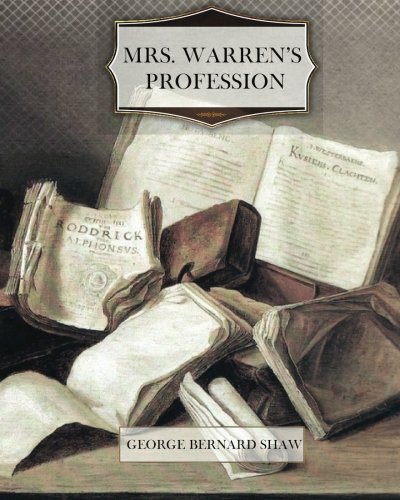
George Bernard Shaw
Mrs. Warren’s Profession
Paperback (CreateSpace Independent Publishing Platform Sept. 19, 2011) -
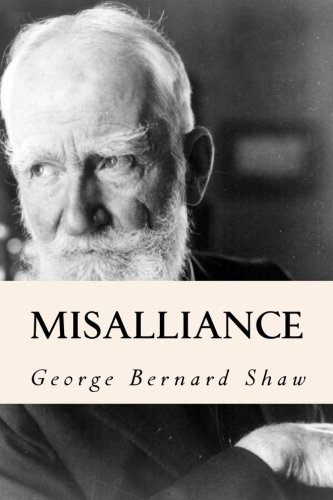
George Bernard Shaw
Misalliance
Paperback (CreateSpace Independent Publishing Platform Oct. 27, 2014) -

George Bernard Shaw
Pygmalion: A Romance in Five Acts with Connections
Hardcover (Holt, Rinehart and Winston Jan. 5, 2000) -

George Bernard Shaw
Mrs. Warren's Profession
Paperback (CreateSpace Independent Publishing Platform Nov. 7, 2016) -

George Bernard Shaw
Androcles and the Lion
Paperback (CreateSpace Independent Publishing Platform Oct. 21, 2017) -
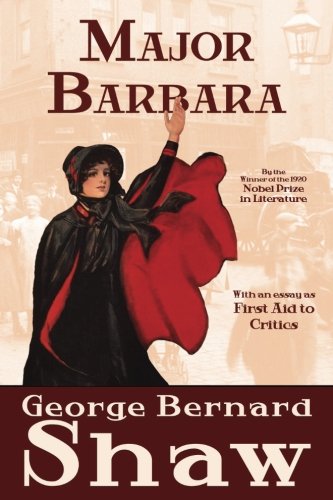
George Bernard Shaw
Major Barbara: With an essay as "First Aid to Critics"
Paperback (CreateSpace Independent Publishing Platform July 25, 2017) -
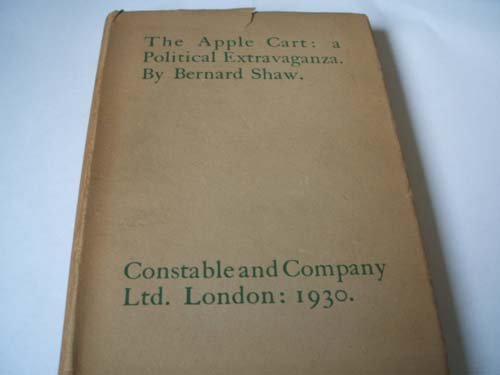
George Bernard Shaw
The Apple Cart: A Political Extravaganza
Hardcover (Constable & Company Jan. 1, 1930) -

George Bernard Shaw
Arms and the Man
Paperback (CreateSpace Independent Publishing Platform Nov. 28, 2016) -

George Bernard Shaw
Arms and the Man
Paperback (CreateSpace Independent Publishing Platform Jan. 1, 2014) -
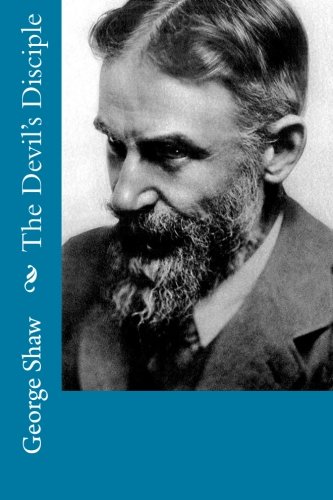
George Bernard Shaw
The Devil's Disciple
Paperback (CreateSpace Independent Publishing Platform July 30, 2014) -

George Bernard Shaw
The Shewing-up of Blanco Posnet
Paperback (CreateSpace Independent Publishing Platform Nov. 28, 2016) -

George Bernard Shaw
Cashel Byron's Profession
Paperback (CreateSpace Independent Publishing Platform Feb. 9, 2016)

